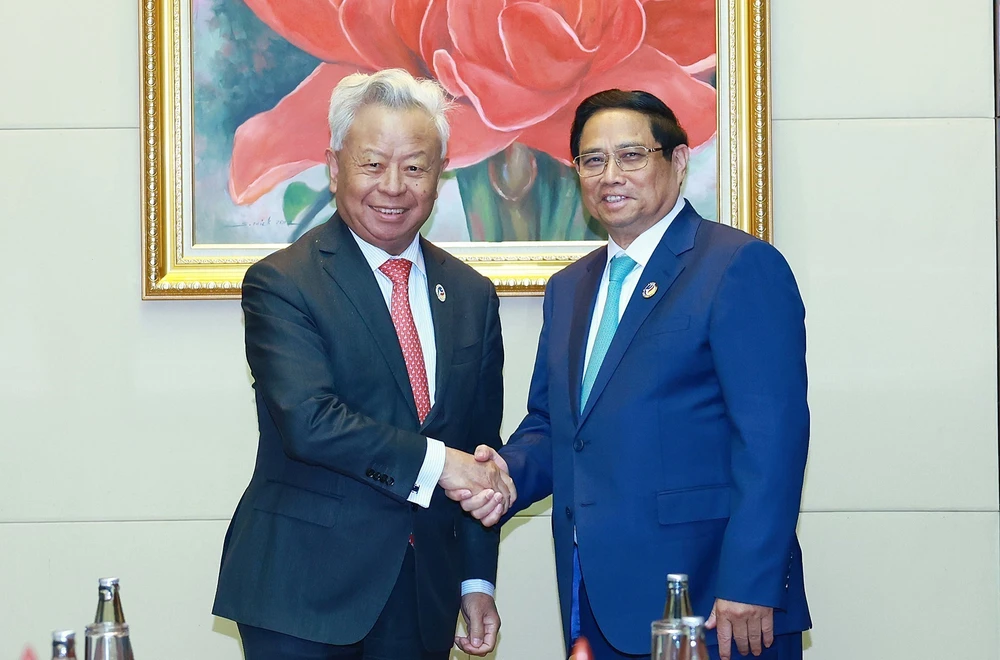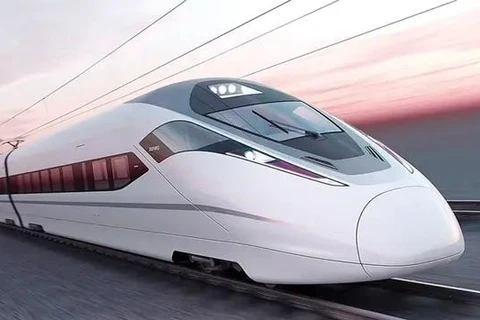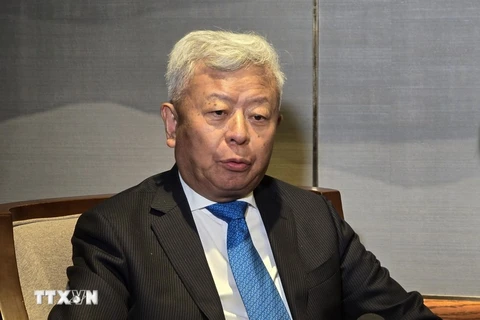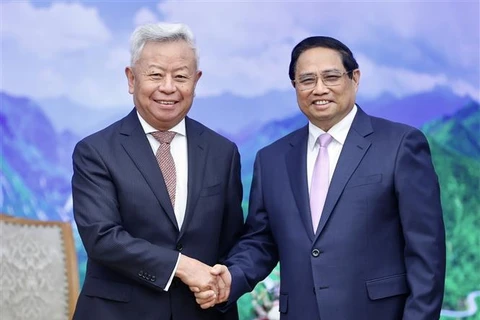
Vientiane (VNA) – Prime Minister Pham Minh Chinh asked the Asian Infrastructure Investment Bank (AIIB) to continue supporting Vietnam in mobilising resources to implement large-scaled projects such as the Lao Cai - Hanoi - Hai Phong and Lang Son - Hanoi standard-gauge railway ones during a reception for AIIB President Jin Liqun in Vientiane on October 10.
At the event, held on the occasion of the 44th and 45th ASEAN Summits and related meetings, PM Chinh spoke highly of the AIIB's contributions to Vietnam's development in recent times, stating that Vietnam will continue to attach importance to and actively and responsibly participate in the bank's cooperation initiatives.
Briefing Jin on Vietnam's socioeconomic development situation and policies, the Vietnamese Government leader highlighted the country’s high priority on developing strategic road and railway infrastructure.
He called on the AIIB to provide concessional loans, transfer technology, and help with training human resources to carry out such important projects.
Agreeing with the PM’s proposals, the AIIB President underscored the importance and spillover effects of large-scaled infrastructure projects on improving connectivity, logistics capacity, and socio-economic development in the localities housing them, thereby attracting more high-quality investments to Vietnam.
He affirmed that the AIIB will continue to accompany and assist Vietnam in mobilising resources to develop key infrastructure facilities, ensure energy for high-speed railway operations, and participate in transport infrastructure, healthcare, climate change adaptation and energy transition projects in the Mekong Sub-region.
The two sides agreed to establish working groups to conduct pre-feasibility studies for cooperation projects, strengthen the connection between Vietnam's "Two Corridors, One Belt" initiative and China's "Belt and Road" initiative, and work together to help develop the AIIB into a prestigious and highly efficient regional development bank, meeting the practical needs and interests of member countries./.






















